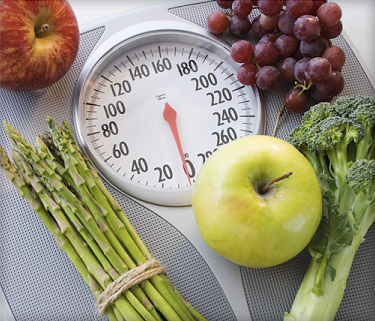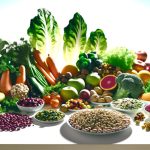Do you believe that having a nutritious eating plan would guard you against nutrient lack? Just eat the rainbow and you’re fine, right? However, even with an ideal diet, something that realistically most of us have not attained, it is still possible for females to be lacking in essential nutrients.
It is critical to be familiar with the warning signs of nutrient insufficiency since inadequacies of certain nutrients can increase one’s chances of getting serious health conditions, such as heart disorder and cancer. You should identify these issues as soon as possible in order to address them quickly.
In this article we’ll discuss some of the most frequent nutrient shortages. Let us begin examining what a nutritive insufficiency really entails.
What’s the Definition of Nutrient Deficiency?
When someone does not ingest adequate levels of a vitamin, mineral, or fatty acid, it can result in nutrient inadequacy. This can be due to either insufficient consumption or difficulty in absorption. When attempting to pinpoint nutrient deficiencies, doctors typically evaluate recommended intakes for various nutrients as well as the amount of each nutrient present in the patient’s blood. Still, not everyone is of the opinion that these figures disclose the entire account.
Did you know? Healthcare specialists who focus on diet suggest that you don’t have to come to a state of serious lack in order to experience nutrition issues.
Viewing it from another angle, the set quantities are in place to ensure individuals acquire the most basic level of every nutrient. For the most effective nourishment, the ideal levels of nutrients in both food and blood may be enhanced.
Warning Signs of Nutrient Deficiency in Women
Michelle Simon, Ph.D., ND notes that there are common symptoms linked to a lot of nutrient deficiencies and they can be very similar. Simon is the head of the Institute for Natural Medicine, a non-profit corporation that is dedicated to teaching people about naturopathic healthcare. According to her, fatigue is usually one of the first indicators that someone is not getting enough nutrients. If you experience a remarkable decrease in vitality, use this as an indication that your dietary requirements may need to be addressed.
In addition to a general insufficiency in essential nutrients, particular elements like different types of diets, medications, and lifestyle choices may place a woman in a greater position of jeopardy for nutrient inadequacies.
Stress-Related Nutrient Deficiencies
Strain, particularly when it’s intense due to life matters, constant discomfort, or a sickness, can cause significant changes to nutrient levels.
Prolonged tension disrupts glucose metabolism, lowers insulin sensitivity, and impacts various appetite-related procedures. The result? Mood changes and altered food preferences. Your cravings and distaste for certain foods may fluctuate, potentially impacting the amount of nutrients you consume.
During times of stress, the body releases more of the hormone cortisol. Cortisol is linked to higher intake of saturated fat. In individuals who have diabetes, heightened cortisol could increase one’s craving for sweets.
Strain can bring about a reduction in vitamins and minerals, including magnesium, B vitamins, as well as antioxidants. This has the consequence of impeding a person’s immune system and lowering defense against illness.
Anxiety can impede our capacity to take in the vitamins and minerals we consume.
Vegetarian and Vegan Nutrient Deficiencies
Eating regimens that exclude entire groups of provisions, for instance, vegetarian and vegan diets, can be vulnerable to nutrient deficiencies if not properly structured. Here are some common nutrient deficiencies in vegetarians and vegans:
Vegetarians and vegans specifically have to take additional supplements due to the fact that B12 is only present in animal products.
Calcium, which is common in dairy goods, is also present in green vegetables with strong pigmentation, plant based foods enhanced with calcium, and tofu produced with calcium sulfate.
Iron is another mineral found in animal products. Vegetarian diets may include legumes, cereals, nuts and kernels, and dark leafy vegetables.
Celiac Nutrient Deficiencies
Celiac disease causes harm to the small intestine, making it incapable of taking in nutrients from food. Individuals with celiac illness may experience a lack of nutrients, including iron, calcium, magnesium, zinc, certain B complexes, and vitamin D because of their condition. A word of warning to people who have celiac disease and are seeking to add vitamins and minerals to their diet in order to prevent deficiencies: Be careful as quite a few supplements contain gluten and therefore you should buy ones which specifically state gluten as an ingredient.
Common Nutrient Deficiencies
Vitamin C
Humans lack the ability to create vitamin C inside the body, but animals are capable of doing so. Therefore, it is essential to obtain it via diet. There is a great deal of Vitamin C in oranges, tomatoes, tomato juice, potatoes, red and green bell peppers, kiwi fruit, broccoli, strawberries, brussels sprouts, and cantaloupe. L-carnitine, collagen and some neurotransmitters are all related to metabolic processes, specifically primary metabolic activities.
It is essential that vitamin C is taken in order to improve the immune system’s functioning, as well as allowing the absorption of non-heme iron and the production of antioxidants. The RDA for those over the age of 19 is 90 mg for males and 75 mg for females. Expectant mothers and those who are breast-feeding should have around 80 to 85 milligrams of the nutrient and nursing mothers should obtain between 115 and 120 milligrams.
Scurvy is a direct result of a deficiency in vitamin C and can cause a person to become exhausted and listless, as well as having swollen gums, teeth that loosen or fall out, sore joints, and an inability to heal from wounds properly. Older folk and individuals with a history of alcohol abuse may be negatively impacted by vitamin C deficiencies since their bodies are not able to absorb it as efficiently because of their nutrient poor diets or substance use.
Vitamin D
Vitamin D is a type of fat-soluble vitamin that functions in the body in a similar way to a steroid hormone. It makes its way into your cells using the circulation and advises them whether or not to activate or deactivate particular genes. Almost every cell in the body may contain Vitamin D receptors. When the skin is exposed to sunlight, the production of vitamin D occurs out of cholesterol. Those living far from the equator are at risk for vitamin D deficiency unless they get enough through their diet or take a supplement.
Signs of a Vitamin D insufficiency usually can’t be recognized since the side effects are mild and increase over a lengthy span of time. Folks with insufficient levels of vitamin D experience muscle inadequacy, bone reduction, and a likelihood of breakages that’s higher than usual. Children may suffer from developmental issues and soft bones (rickets) as a result. Research shows that a lack of vitamin D can cause a person’s immune system to be weakened, increasing the possibility of developing cancer.
Iodine
Iodine can be found in items found in the sea such as fish, seaweed, shrimp, and other shellfish, as well as in dairy and grain-based food products. Different crops have varying levels of it depending on the soil in which they are grown. The body employs iodine to make thyroid hormones, which control other vital processes. It is imperative for the proper development of the bones and brain during pregnancy and childhood that thyroid hormones are obtained. All grown-ups need 150 micrograms of iodine daily, while expectant mothers should get 220 micrograms, and nursing mothers should consume 290 micrograms.
Calcium
Each cell in the organism requires calcium to operate correctly. It assists in making bones and teeth sturdy, particularly during times of swift development. It is further critical for maintaining bone health.
Calcium also functions as a signaling molecule. The heart, muscles, and nerves cannot operate without them. Our bones serve as a storage unit for extra calcium and our bloodstream is held to a strict standard of regulation. Grub with a high calcium content includes dairy products such as cheese and milk, specific fish, dark leafy vegetables and items produced with enriched flour. What if the optimal amount of calcium is not available to do necessary tasks? In that event, with an aim to fulfill the necessity, bones relinquish calcium, leading to osteoporosis, a medical condition where the bones are fragile and weak, which is the most typical manifestation of calcium deficiency.
Iron
Iron is a vital mineral. It is an important aspect of red blood cells that is associated with hemoglobin and transports oxygen to the cells. Iron assists various necessary activities, such as the manufacturing of red blood cells and the maintenance of our body’s protein system.
Dietary iron comes in two forms:
- Iron heme: This iron is highly efficiently absorbed. It’s exclusively present in animal products, with red meat having the highest concentration.
- Heme-free iron is more prevalent and can be present in animal and plant sources. It is not comparatively easily absorbed like heme iron.
According to studies, iron deficiency is a widespread nutritional deficiency, affecting more than a quarter of the people on Earth. In addition, since vegetarians and vegans only consume non-heme iron and this kind of iron is not as quickly taken in by the body, they are more likely to lack it. For males between 19 and 51 years old, the daily recommended intake of iron is 8 milligrams. For women aged 19 to 51, it is recommended that they have 18 milligrams of iron per day.
Males and females over the age of 51 require a minimum of 8 milligrams per day according to the RDA. Heme iron can be obtained from eating red meat, organ meat, canned sardines, and shellfish. Non-heme iron can be found in a variety of sources, such as legumes, dried fruits, nuts, beans, seeds, whole grains, broccoli, kale, and spinach.
Low energy levels and inability to operate at a high level, postponed cognitive and social skills in young kids, difficulty controlling body temperature, weakened immune system, higher risk of catching infections, and an inflamed tongue are all demonstrations of iron deficiency.
Magnesium
Magnesium is an essential element in the human body. The growth of bones and teeth is essential, and this process is dependent upon more than three hundred enzyme activities. Several illnesses, like type 2 diabetes, metabolic syndrome, cardiovascular disease, and osteoporosis, can be traced back to a lack of magnesium. Low levels are persistent among patients in hospitals. Furthermore, certain health conditions, taking prescriptions, hampered gastrointestinal performance, or not enough magnesium consumption can all contribute to a lack.
Young women aged 19 to 30 should aim for a daily allowance of 310 milligrams of calcium, while adult women aged 31 and above should strive for 320 milligrams.
Decreased hunger, feeling sick to the stomach, throwing up, fatigue, and lack of strength can be the initial signs of insufficient magnesium. A progression of magnesium deficiency can result in a lack of sensation, migraines, pins and needles, contracted muscles and spasms, seizures, alteration of behavior, heart rhythm disturbances, and spasms of the coronary artery.
Insulin insensitivity and hypertension are two further moderate or extended-term indications that may go unnoticed.
Vitamin B12
Cobalamin, also referred to as Vitamin B12, is a water-soluble nutrient. It is essential to generate blood flow and stimulate the brain and nerves. Vitamin B12 is necessary for the normal activity of cells; nevertheless, the body is not able to produce it. Therefore, it is essential that people get it from their diet or through taking supplements. B12 is present in significant quantities in animal diets. However, some forms of seaweed can contain minor amounts. Those who avoid consuming foods derived from animals are at a higher risk of becoming deficient in vitamin B12.
Studies have shown that in elderly people, there is a reduction in B12 absorption and consequently up to 20% of them may not have the necessary levels of it in their body. Absorption of vitamin B12 is more complicated than with other vitamins due to the presence of an intrinsic factor. A lot of individuals necessitate B12 shots or higher supplement amounts if they have a shortage of B12.
A common sign of a Vitamin B12 deficiency is megaloblastic anemia, a condition where the red blood cells become enlarged. Signs of illness such as perplexing mental acuity and elevated amounts of homocysteine, which can cause multiple diseases, may also be observed.
Does Nutrient Deficiency Signal a Bigger Problem?
In some cases, insufficient levels of essential nutrients can be attributed to a diet that requires additional nutrients, or a period of heightened pressure. Yet, these can also signify that a more profound issue is present.
Simon points to vitamin B12 deficiency as an example. Evidence of a lack of Vitamin B12 can point towards pernicious anemia, which is a resultant of the reduction in the number of stomach cells able to generate intrinsic factor. The body’s immune system may destroy those cells, resulting in this state of affairs. If not addressed, the consequences of this can be long-term injury to the nerves and organs and increases the probability of developing stomach cancer.
Simon brings attention to a potential indicator of celiac disease, diabetes, and an uncommon complication referred to as Hungry Bone Syndrome wherein bone decay is quickened, regularly because of a parathyroid hormone discrepancy.
How To Test for Nutrient Deficiencies
It is essential to look into any possible vitamin and mineral deficiencies due to the potential risks they may cause. Also, inadequate nutrition can deliver negative messages. Simon recommends setting up an appointment with a professional who is knowledgeable in the area of clinical nutrition. Naturopathic physicians are an obvious decision, as they are immensely knowledgeable concerning nutrition.
Simon points out that naturopathic doctors have 144 hours of clinical nutrition schooling in addition to an exhaustive education in the biochemical faculties of nutrient function. Consulting a knowledgeable medical specialist can quicken the finding of any inherent issues and help with creating an approach tailored to the issue.
If you, as a female, care about your general health and well-being, don’t just concentrate on the superficial and begin to actively comprehend and resolve the nutrient deficiencies you may have. Together, we can make them uncommon!
Women’s Defense is uniquely formulated to naturally assist the built-in defenses of a woman’s body to keep it strong. The ingredients from around the world, including a special blend of mushrooms, cat’s claw, fermented soy and red clover, work together to support overall well-being and balance.
- Contains a unique blend of Chinese mushrooms
- May help increase energy, vitality, and endurance
- Supports healthy immune function
- May support healthy blood glucose levels









